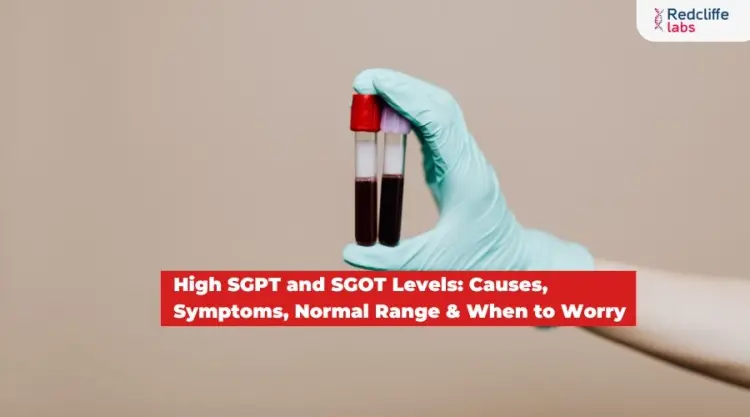The PSA Total Test measures prostate-specific antige...Read more
Blood
Unlock special
discount on
this package
Login to Unlock 🔓
Also Known As
PSA Total, Prostate Specific Antigen (PSA)NABL Accredited lab*

Booking Benefits Unlocked Worth FREE 799

Report Consultation

Diet Plan
*Available once your report is generated.
At Redcliffe Labs, we have a single goal: to give India its right to quality diagnostics.
Customers served
Tests Processed Everyday
Cities
Collection Centres
World Class In-house Labs
Home Collection Experts
1 Test Parameters
Prostate Specific Antigen (PSA) Total
1 PARAMETER INCLUDED
1 PARAMETER INCLUDED
- PSA - Total (Prostate Specific Antigen)
Helps you know your test better
Who all are eligible for PSA test?
- Males between the ages of 18 and 99 years.
- In case of Prostate medical history in men.
- People with frequent urination, pain and burning during urination, stiffness and pain in their hips, lower back, rectal, and pelvic regions, urine dribbling, and problems with bladder control.
- In case of any abnormalities with male testicles.
Why take PSA Lab test?
- This test helps to detect prostate cancer.
- Prostate antigen levels in the blood are measured to determine whether a prostate tumour is cancerous or non-cancerous.
What are the benefits of PSA test?
- It limits the spread of tumors by early detection and treatment.
- It is necessary to be aware of one's prostate status to prevent such diseases.
- It has become easy to treat and cure prostate gland-related illnesses, such as BPH, enlarged prostate, and prostatitis.
Top Booked Health Checkup Packages
Reports in 15 hours
|Parameters 94
Reports in 15 hours
|Parameters 89
Reports in 15 hours
|Parameters 96
Reports in 15 hours
|Parameters 96
Reports in 15 hours
|Parameters 90
Helps you know your test better
Q. What PSA Level Indicates Prostate Cancer?
Q. How can I book my test?
Q. In how much time will I get my test report?
Q. Where can I see or get my test results?
Q. Is home sample collection available for PSA test?
Verified by Medical Expert

WRITTEN BY
Sheena Mehta

MEDICALLY REVIEWED BY
Dr. Pradeep Lodha
PSA Blood Test in Mumbai
Men between 40 and 60 years are more susceptible to prostate issues due to age-related changes in the prostate gland. The risk of prostate cancer, benign prostatic hyperplasia, and prostatitis increases as men get older. These conditions can lead to symptoms such as difficulty starting or stopping urine flow, frequent urination, especially at night, weak urine stream, and pain or discomfort in the pelvic area.
Taking the Prostate Specific Antigen (PSA) Total test is crucial as it helps in the early detection of prostate-related issues, such as prostate cancer. The PSA total test measures the level of prostate-specific antigen in the blood.
It is recommended for men above 45 to take the PSA test annually, especially if they have a family history of prostate cancer or other risk factors.
In addition, regular health checkups of PSA total tests help men maintain good health, manage risks effectively, and detect health issues before they become severe.
What is a PSA test?
The PSA or Prostate-specific antigen is a protein that is produced by the cells of the prostate gland. Apart from the normal cells, even cancerous tissues in the gland secrete PSA. The PSA normally circulates in the blood and is thus detected through a PSA blood test in Mumbai. The PSA protein can bind to other proteins or move freely in the blood. There are three types of PSA blood test:
- PSA total test that calculates the total amount of PSA in blood, whether it is in bound or free form.
- PSA free test only measures the amount of PSA that is present freely in the blood and is not bound to any other protein.
Abnormally high levels of PSA indicate the presence of cancerous tissues in the gland or a condition known as prostatitis.
Why is a PSA Test conducted?
A prostate blood test in Mumbai is generally done to diagnose the presence of prostate cancer in its early stage so that efficient treatment can be provided. The prostate test is also conducted for people who are at a higher risk of getting prostate cancer. You might be suggested for a PSA test if you had a family history of prostate cancer, that is if your father or brother was suffering from prostate cancer. Since prostate cancer is more common in the elderly, therefore, men above the age of 50 are generally advised for a PSA test. In people who have already been diagnosed with prostate cancer, a PSA test is done to monitor the effects of treatment on cancer or to choose an appropriate treatment plan for your cancer.
What are the Symptoms that can lead you to a PSA test?
Some of the symptoms due to which your doctor can prescribe you a PSA test are:
- Presence of blood in the urine
- Erectile dysfunction
- Bone pain
- Presence of blood in semen
- Inability to control bladder
- Slow or delayed start of urination
- Frequent urination
- Painful urination
- Leakage of urination
- Pelvic pain
- Back pain
How is the PSA test done?
A PSA lab test is a simple diagnostic blood test that uses blood samples to predict the values of PSA. The process of sample collection is very similar to the one collected in any normal blood test. Firstly, an antiseptic will be applied on your arm at the point from where the blood has to be collected. The blood will be collected from the vein of your arm through a needle. The blood is collected in a vial which is then sent to the laboratory for testing.
How can I Interpret the Results of my PSA test?
The PSA tests are very easy to interpret. High levels of PSA indicate chances of prostate cancer. The risk of prostate cancer in patients is determined by the ratio of free PSA levels and total PSA levels. If the ratio of free PSA to total PSA levels is high, it indicates a lower risk of prostate cancer in the patient whereas, if the ratio of free PSA to total PSA levels is low, it indicates a high possibility of prostate cancer in the patient. Sometimes, apart from cancer, there is a possibility of inflammation in the prostate gland that can increase the levels of PSA in the blood. This condition of prostate inflammation is known as prostatitis. Low levels of PSA in the blood are generally rare and are not a matter of medical concern or emergency.
What is the optimum range of PSA in the body?
The normal range of PSA depends upon the age of the male. If your age is between 40 - 49, then the PSA levels must be within 2.5 ng/mL, if your age is between 50 - 59, then the levels of PSA in your blood must be less than 3.5 ng/mL. If you have an age that ranges from 60 - 69, then the PSA levels are generally less than 4.5 ng/mL and if in case your age is between 70 - 79, then the optimum level of PSA in your blood is below 6.5 ng/mL.
What does the PSA Test Cost in Mumbai?
| Name Of The Test | PSA Test in Mumbai |
| Sample Type | Blood |
| Number Of Tests | 1 |
| Actual Test Price | Rs 1592 |
| Discounted Test Price | Rs 780 |
| Home Sample Collection | Available |
| Additional Cost For Home Sample Collection | Nil |
| Fasting Before Test | Not Required |
| Get Reports Within | Same Day |
The PSA test is a simple process and is quite affordable. The PSA test price in Mumbai at Redcliffe Labs is approximately Rs 1500/- which under special discounts is currently available at Rs 849/- only.
How can I book a PSA test in Mumbai?
In order to book a PSA Lab test in Mumbai at Redcliffe labs, you can use any two ways of booking, that is, you can either call at our centre, where a well-trained and polite staff representative will assist you in your booking process or you can also book your test online from our official website. Both the ways of booking a test are easy and hassle-free and can easily be assessed from anywhere.
PSA Test Sample Report - Redcliffe Labs

5 Simple Steps to Manage Your Health with Redcliffe Labs
Quick, Simple & Convenient; trusted care delivered to your doorstep.

Start Your Online Booking
Open the Redcliffe Labs website/app. Select the test or package and enter your details. Schedule the service for your preferred slot.

Live Tracking
Stay updated with real-time tracking for a smooth and timely home sample collection.

Sample Collection
Our certified experts ensure a smooth, hygienic, and fully compliant sample collection experience.

Doctor-Verified Smart Reports
Every report is clinically checked by expert doctors and shared with smart, actionable insights.

Your Health Journey Continues Post Reports
Consult with our expert medical team to get actionable insights to improve your health.
Nearby Labs(1)
Redcliffe Labs Mumbai

MC-6502
Frequently Asked Questions
What is PSA test?
Does a PSA blood test detect all cancers?
What is normal PSA by age?
What is the highest PSA level a man can have?
What are the factors that can affect the PSA levels?
Can I immediately get a PSA Lab test done after prostate surgery?
Are there any risks associated with a PSA test?
What is the precaution I should take before getting a PSA test done?
What are the other tests that I may undergo after the PSA test?
When will I receive my reports?
Can I book a Prostate Specific Antigen (PSA) Total Test near me in Mumbai?
Can I book a home collection for a Prostate Specific Antigen (PSA) Total Test in Mumbai?
Health Articles & Blogs
My Health
Stay informed with our expert health articles and blogs. Explore comprehensive guides on diseases, nutrition, preventive care, and wellness tips to help you make better health decisions.
Migraine Treatment at Home: Effective Ways to Relieve Migraines Naturally

High SGPT and SGOT Levels: Causes, Symptoms, Normal Range & When to Worry

Brain Hemorrhage Symptoms: Early Warning Signs, Types, Causes & When to Seek Emergency Care

What is SGPT in Blood Reports? Everything You Need to Know

Capsicum (Shimla Mirch) 101: Benefits, Nutritional Value, Uses and More

Normal Calcium Levels: Range, Symptoms & Causes of Imbalance

Home Remedies to Get Rid of Cold in Babies: Safe & Natural Relief for Infants
Discover safe home remedies to get rid of cold in babies. Learn natural and gentle relief methods to ease cough, congestion, and cold symptoms in infants.

How Often Should You Get a Full Body Health Checkup?
Explore My Health
